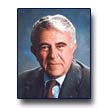 |
|
|
 |
 |
 |
 |
| LEARN ANOTHER LANGUAGE : |
| General Statements |

|
Clinton, Hillary Rodham
Current U.S. Secretary of State
United States
Profile >
|
"Because Senator Fulbright knew – in fact, he once said – that, “Educational exchanges can turn nations into people.” And what did he mean by that? Well, if you think of the United States or you think of any other country in the world, and you don’t know anyone and you don’t understand the language or the culture or the history, it’s easy to lose sight of the common humanity that connects us. And Senator Fulbright knew that humanizing international relations was critical for achieving lasting peace and progress. Because when the leaders and citizens of different countries can find common ground with each other we are far more likely to negotiate our differences peacefully."
Full Statement >
|
|
|

|
Duncan, Arne
Current U.S. Secretary of Education
United States
Profile >
|
"The United States is a country made up of many cultures—and we often celebrate that diversity. But just as often, we rely on the predominance of English as the language of global business and higher education when looking toward the world."
"This reliance can put us at a disadvantage. We haven't been compelled to meet our global neighbors on their own terms, and learn about their histories, values and viewpoints. I am worried that in this interconnected world, our country risks being disconnected from the contributions of other countries and cultures. Through education and exchange, we can become better collaborators and competitors in the global economy."
Full Statement >
|
|
|
 |
Gilman, Benjamin (R-NY)
Former Congressman
Congress
Profile >
|
“In my years of experience with our nation's foreign policy, I see that the most enduring influence is achieved through our international exchange programs. People-to-people contact - the seeing, doing and interacting - is how we learn to appreciate similarities, differences or other ways of doing things. Exchanges provide forums for new ideas, training opportunities and the chance to build support networks. Professionals, high school students, academics or mid-level government officials all benefit from the experience of interacting with their international counterparts. This exposure to a world outside of one's home country leads to greater understanding, which is particularly important for the emerging democracies where people are looking for a lifeline to secure reforms and freedoms.”
Full Statement >
|
|
|
 |
|
|
|
 |
|
|
 |